
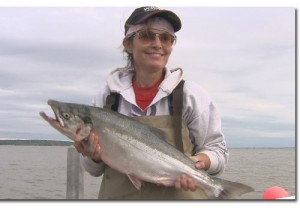
Unless my memory is playing tricks on me, I don’t believe that Truman, Eisenhower, Kennedy, Johnson, Nixon, Ford, or Carter ever used the terms “good guys” or “bad guys” in public speeches, at least not without any trace of irony. Whether this started with Reagan, the first Bush, or the second, these terms have finally become coin of the realm in the campaign speeches of both McCain and Palin, seemingly as acceptable indexes of reality. If Obama and Biden have more recently used these terms unironically as well, out of some misplaced sense of self-defensiveness, then this may rule out the possibility that I’ve been idealistically entertaining, that Obama may be the first full-fledged grownup to have run for President in several decades.
I hasten to add that calling people you want to obliterate “bad guys” is hardly the same thing as calling Hitler and/or Stalin and what they stood for “evil”. The latter is an ethical position of some kind; the former is a reference to games played (and concepts played with) by children. And not being able to tell the difference between the two — which may bear some relation to not being able to tell the difference between Mahmoud Ahmadinejad and the mullahs, or between any of the leaders deemed as “bad guys” and any of the civilians who would likely be the first to be hit by any bombs or missiles — is clearly related to a child’s desire to make contemporary warfare understandable in the same simplistic terms as Star Wars, thus helping to account for CNN logos and James Earl Jones intoning station identification. Read more
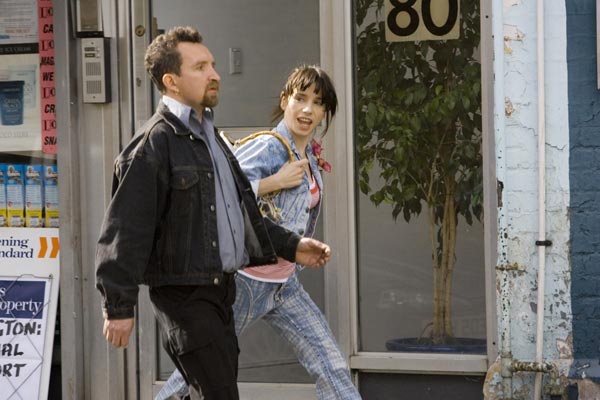
Could Mike Leigh’s latest feature really be his “mellowest work yet,” as Alissa Simon maintained in her Variety review when it premiered in Berlin back in February? I guess it could seem that way if you focus on Sally Hawkins’ winning performance and factor out all the creepy characters in her orbit–including her nearly psychotic driving instructor (the terrifying Eddie Marsan, seen with her above), her pregnant sister, her flamenco dance teacher, and an incoherent tramp she encounters at one point (among others), most of whom are viewed as volatile monsters who are apt to explode at any moment. But for me this is probably Leigh’s scariest and bleakest movie since Naked, no less remote from any ordinary kind of realism (despite Hawkins’ frequent impression to the contrary) and packed with all sorts of disquiet, anxiety, and trouble. [10/5/08]

Read more
Some wisdom from the last Depression, courtesy of Kenneth Fearing (1902-1961), taken from his 1935 Poems. (My apologies for not being able to transcribe the spacing more accurately.)
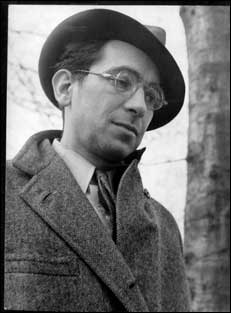
Dirge
1-2-3 was the number he played but today the number came 3-2-1;
bought his Carbide at 30 and it went to 29; had the favorite at Bowie but the track was slow —-
O, executive type, would you like to drive a floating power, knee-action, silk- upholstered six? Wed a Hollywood star? Shoot the course in 58? Draw to the ace, king, jack?
O, fellow with a will who won’t take no, watch out for three cigarettes on the same, single match; O, democratic voter born in August under Mars, beware of liquidated rails—-
Denoument to denouement, he took a personal pride in the certain, certain way he lived his own, private life,
but nevertheless, they shut off his gas; nevertheless, the bank foreclosed; nevertheless, the landlord called; nevertheless the radio broke,
And twelve o’clock arrived just once too often,
just the same he wore one gray tweed suit, bought one straw hat, drank one straight Scotch, walked one short step, took one long look, drew one deep breath,
just one too many,
And wow he died as wow he lived,
going whop to the office and blooie home to sleep and biff got married and bam had children and oof got fired,
zowie did he live and zowie did he die,
With who the hell are you at the corner of his casket, and where the hell we going on the right-hand silver knob, and who the hell cares walking second from the end with an American Beauty wreath from why the hell not,
Very much missed by the circulation staff of the New York Evening Post; deeply, deeply mourned by the B.M.T., Read more


Here is a link to the formidable cast list of James Benning’s RR, announced as his last work to be shot in 16-millimeter and seen last night at the Vancouver International Film Festival. I hope to follow with some more details about this beautiful epic soon. [10/3/08]
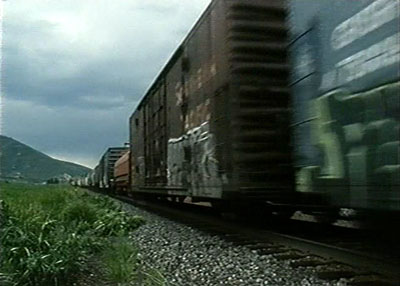 Read more
Read more
From the February 24, 2oo6 Chicago Reader. — J.R.
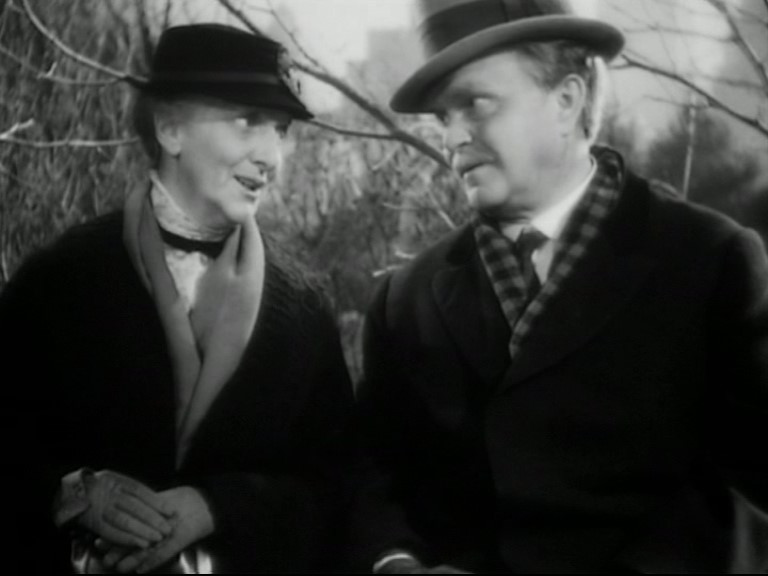
With the possible exception of Yasujiro Ozu’s Tokyo Story, this 1937 drama by Leo McCarey is the greatest movie ever made about the plight of the elderly. (It flopped at the box office, but when McCarey accepted an Oscar for The Awful Truth, released the same year, he rightly pointed out that he was getting it for the wrong picture.) Victor Moore and Beulah Bondi play a devoted old couple who find they can’t stay together because of financial difficulties; their interactions with their grown children are only part of what makes this movie so subtle and well observed. Adapted by Vina Delmar from Josephine Lawrence’s novel Years Are So Long, it’s a profoundly moving love story and a devastating portrait of how society works, and you’re likely to be deeply marked by it. Hollywood movies don’t get much better than this. With Thomas Mitchell, Fay Bainter, and Porter Hall. 91 min. 16mm. Also on the program: McCarey’s silent comedy short Be Your Age (1926), with Charley Chase. Sat 2/25, 8 PM, LaSalle Bank Cinema.
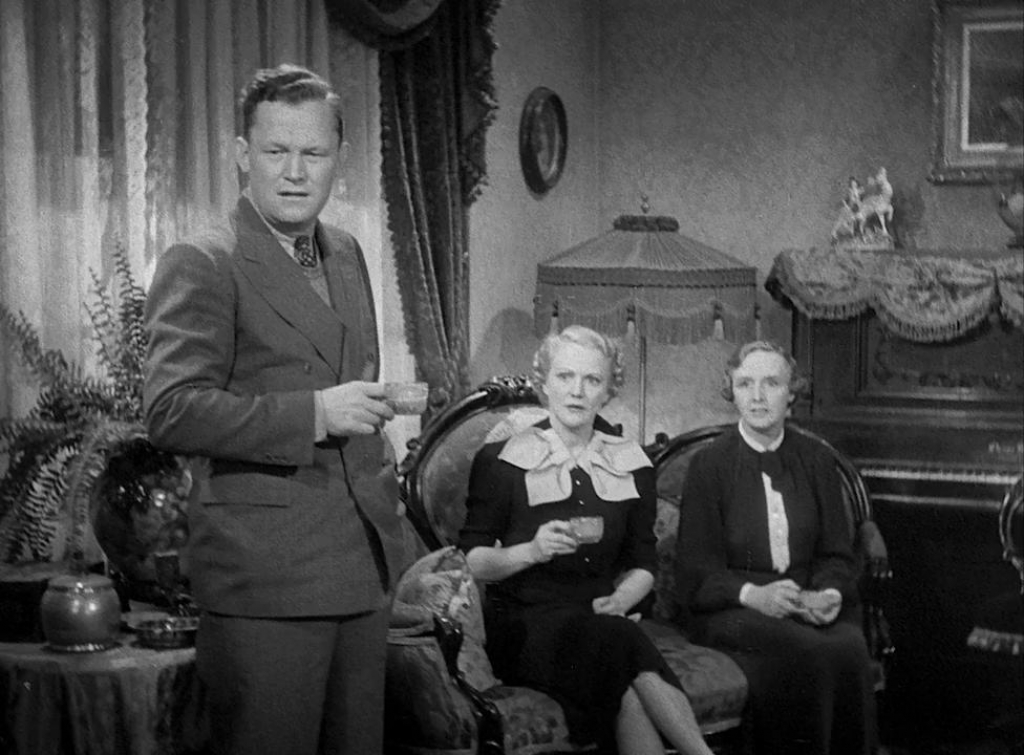 Read more
Read more
From the Chicago Reader (September 1, 2000). — J.R.
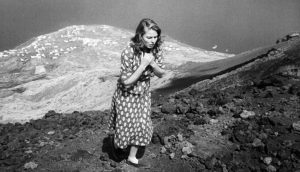
Roberto Rossellini’s first filmic encounter with Ingrid Bergman, made in the wilds in 1949 around the same time the neorealist director and the Hollywood star were being denounced in the U.S. Senate for their adulterous romance. Widely regarded as a masterpiece today, the film was so badly mutilated by Howard Hughes’s RKO (which added offscreen narration, reshuffled some sequences, and deleted others) that Rossellini sued the studio (and lost). The Italian version, which Rossellini approved, has come out on video, and this rarely screened English-language version is very close to it. A Lithuanian-born Czech refugee living in an internment camp (Bergman) marries an Italian fisherman (Mario Vitale) in order to escape, but she winds up on a bare, impoverished island with an active volcano, where most of the locals regard her with hostility. The film is most modern and remarkable when the camera is alone with Bergman, though Rossellini wisely shows neither the wife nor the husband with full sympathy. Eschewing psychology, the film remains a kind of ambiguous pieta whose religious ending is as controversial as that of Rossellini and Bergman’s subsequent Voyage to Italy (though its metaphoric and rhetorical power make it easier to take). Read more
From the December 1, 1992 Chicago Reader. — J.R.
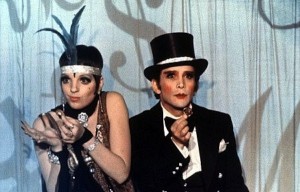
Bob Fosse pretends to be doing a Brecht-Weill while actually further sentimentalizing and glamorizing Christopher Isherwood’s Goodbye to Berlin –adapted by Jay Presson Allen, and apparently closer to the play I Am a Camera than to the Broadway show. Whatever this 1972 feature is, it’s entertaining and stylish, though maybe not quite as serious as it wants to be. Liza Minnelli stars at her near best, and Joel Grey is the caustic nightclub emcee; both won Oscars along with Fosse, cinematographer Geoffrey Unsworth, and music director Ralph Burns. With Michael York, Marisa Berenson, Helmut Griem, and Fritz Wepper; John Kander and Fred Ebb wrote the salty songs. PG, 128 min. (JR)
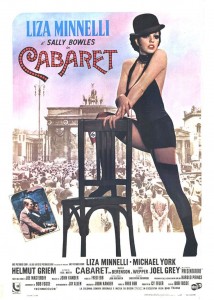 Read more
Read more













